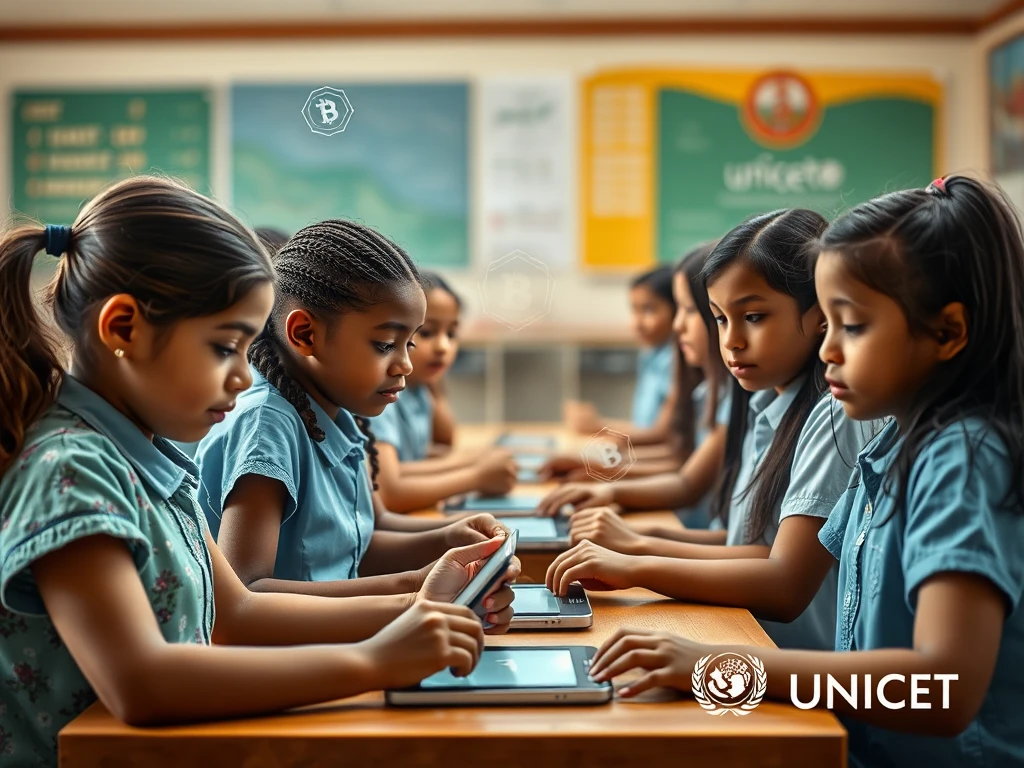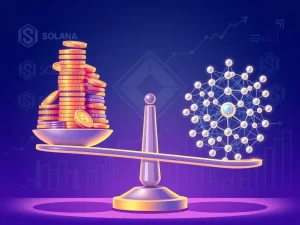Empowering Girls: Bitget UNICEF Partnership Trains 300K in Blockchain Skills

Are you interested in how cryptocurrency and blockchain technology can make a real-world impact beyond trading? Get ready to learn about a powerful new initiative. Leading crypto exchange Bitget has joined forces with UNICEF Luxembourg in a significant Bitget UNICEF partnership aiming to change lives.
Bridging the Gap with Blockchain Education
This isn’t just another corporate donation. It’s a three-year commitment designed to equip 300,000 young people, with a strong focus on adolescent girls, with essential science, technology, engineering, and math (STEM) skills. The program spans eight nations: Armenia, Brazil, Cambodia, India, Kazakhstan, Malaysia, Morocco, and South Africa.
By joining UNICEF’s Game Changers Coalition, Bitget stands alongside other global partners dedicated to empowering the next generation. Their collective goal is ambitious: empower 1.1 million girls with crucial tech and blockchain skills by 2027. This aligns perfectly with Bitget’s existing $10 million Blockchain4Her initiative, which specifically champions women’s digital literacy and financial independence.
Why Focus on Girls in Tech and Digital Literacy?
Globally, there’s a significant digital gender gap. Young women in low and middle-income countries face an estimated $15 billion annual loss in economic opportunities because they have less internet access and fewer digital skills compared to their male peers. Considering that about 90% of jobs today require some form of digital competency, bridging this gap is not just important; it’s urgent.
Bitget CEO, Gracy Chen, emphasized the focus on empowering adolescent girls with STEM skills to help close this disparity. The Bitget UNICEF partnership is working to develop a scalable approach that can integrate blockchain education into global curricula, ensuring it’s practical and accessible.
Innovative Approaches to Blockchain Education
Teaching complex topics like blockchain requires innovative methods. Bitget Academy, the exchange’s educational arm, is helping UNICEF design its first interactive blockchain training module. This module will combine online and in-person sessions, using video game creation as a primary tool to teach blockchain fundamentals.
Why gamification? As Gracy Chen explained, using video game design helps break down complex concepts into understandable parts. With billions of people worldwide playing games, it’s a natural and engaging way to learn, making the environment interactive and supportive for learners. This approach aims to make blockchain education fun and accessible.
Beyond developing the curriculum, Bitget plans to connect UNICEF with leading blockchain protocols and Web3 developers. These experts can act as mentors and partners, providing diverse technical perspectives and ensuring the training is relevant to the rapidly evolving tech landscape. This connection is vital for providing practical STEM skills.
What Does This Mean for Digital Literacy?
This initiative is a powerful step towards enhancing digital literacy among young people, particularly girls, in regions where access to such training might be limited. By providing hands-on experience and foundational knowledge in blockchain and other digital technologies, the program is setting participants up for future success in a world increasingly reliant on digital skills.
The collaboration underscores the potential for the crypto industry to contribute meaningfully to global development goals, focusing on education and empowerment. It highlights that blockchain technology is not just about finance; it’s a foundational technology with applications across many sectors, requiring a skilled workforce.
Summary
The Bitget UNICEF partnership is a landmark initiative set to provide valuable blockchain education and STEM skills to 300,000 young people, primarily adolescent girls, across eight countries. By leveraging innovative methods like gamification and connecting learners with Web3 experts, the program aims to significantly boost digital literacy and help close the persistent gender gap in technology, unlocking immense potential for future generations of girls in tech.









